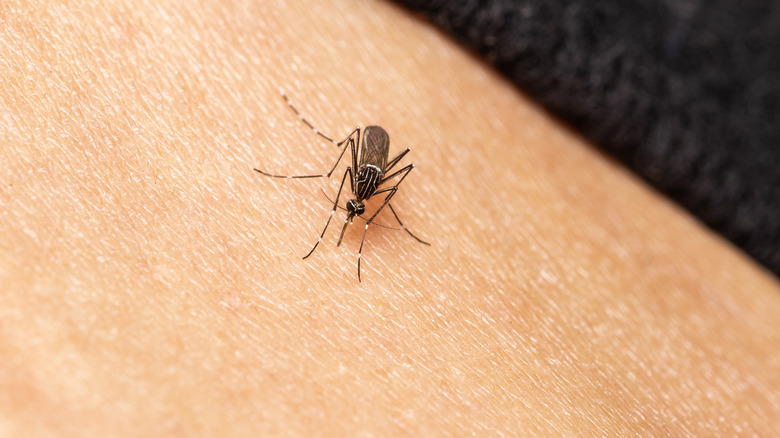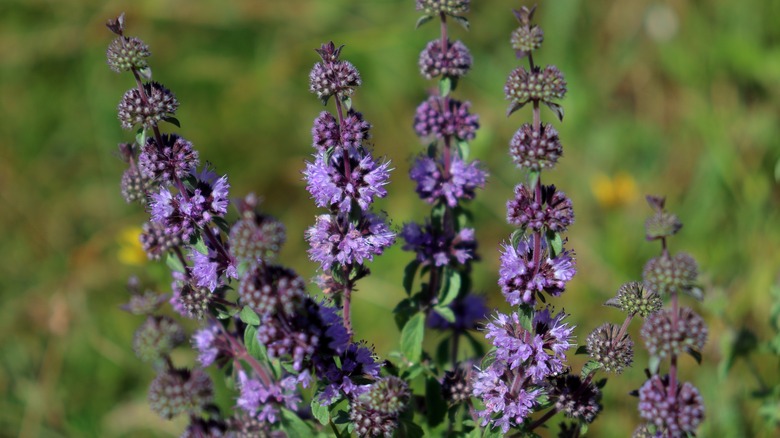Keep Mosquitoes Away From Your Home With An Easy-To-Grow Herb
Mosquitoes are one of the worst parts summer, as they can make sitting on the deck, going out into the yard, or being outside almost impossible at times. Many of us know of the typical plants that repel mosquitoes, such as citronella, basil, lemongrass, and lavender. But there's another plant, traditionally used by the ancient Greeks and Romans to repel a variety of insects.
Native to the Middle East, North Africa, and Europe, this plant is found on almost every continent. Pennyroyal (Mentha pulegium), part of the mint family, is a sprawling ground cover found in damp, low-lying areas. Attributed to its common name, "lurk in the ditch," this herb is known for its extreme potency and love for swampy areas. The pennyroyal plant is a great bug repellent, especially to deter mosquitoes. However, pennyroyal oil is highly toxic if taken internally and can lead to organ failure. Although it's also commonly used in flea and tick repellents, it's also toxic to dogs and cats, especially if ingested.
Does pennyroyal deter mosquitoes?
As part of the mint family, pennyroyal was used in ancient times for its medicinal properties, and it was also planted around farms to repel crop-destroying insects. While its minty scent is pleasing to us, its strong fragrance is off-putting to mosquitoes and other pests, offering a natural defense against insects.
In essential oil form, it can act as a larvicide, targeting young larvae stages of mosquitoes. It's a dual-action herb that affects both mature and immature mosquito life cycle stages. The primary compounds found in pennyroyal are what make it effective at repelling mosquitoes. The main component in mint family plants, pulegone, is an organic compound that gives these plants the scent and flavor of mint that we're familiar with. Pulegone's efficacy in repelling insects is well-documented in various studies, making it one of the most robust insect deterrents. In addition to mosquitoes, it's also effective at warding off ants, lice, ticks, and moths.
How do you use pennyroyal as an insect repellent?
While you can plant pennyroyal in your garden because it's part of the mint family, it still has a pretty sprawling growth pattern. Though less aggressive than mint, be sure to plant it somewhere where it won't affect other plants and where animals or kids can't get to it.
For those who want to use it even more effectively, crushing the leaves and rubbing them on your skin or clothing can help. It can also be burned outdoors, as the smoke will help repel insects, too. Another method is to infuse the leaves in water and turn them into a bug spray. Alternatively, you can also use a combination of essential oils to create your own insect-repellent spray or body oil. Mixing essential oils like pennyroyal with rubbing alcohol makes a mosquito-repelling spray. Similarly, adding essential oils to a carrier like almond oil yields a bug-repelling body oil. Due to its potential toxicity, infants, children, and pregnant women should avoid direct contact. Wash your hands thoroughly after touching pennyroyal to minimize the risk of inadvertent exposure. But, as long as you're careful, this herb will naturally banish mosquitoes from your yard and garden.


